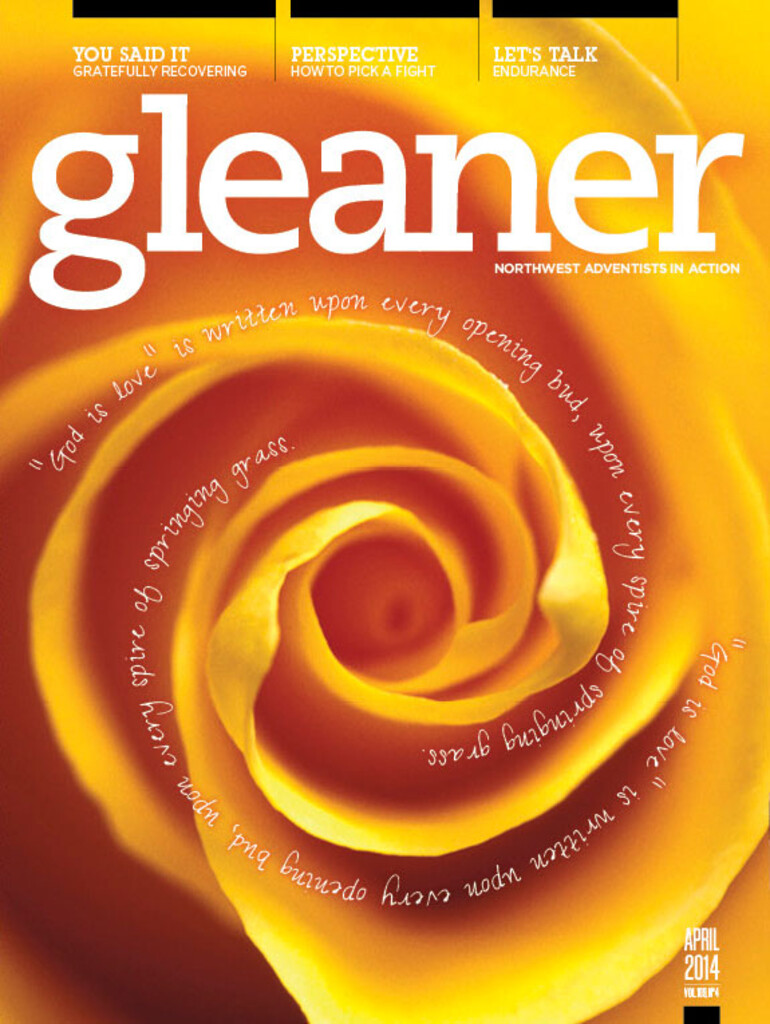Are other Christians our rivals or our friends? In relating to Baptists, Lutherans and Catholics, should we be confrontational or collaborative? Can we participate in community events with them without compromising our unique Seventh-day Adventist mission and message?
Historically, our approach has been confrontation. A century ago and more, Adventist evangelists often were master debaters. They arrived in town, pitched a big tent and challenged local preachers to doctrinal disputes. Quick on the draw with silver-bullet proof texts, the Adventist usually won the spiritual showdown. He carried the audience into subsequent evangelistic meetings, planting a church. That’s how many Adventist congregations got started in the old days.
This approach left a bitter aftertaste in town. Churches founded on confrontation with fellow Christians were unwelcome in the community. Moreover, these new congregations tended to be internally contentious — Sabbath-keepers fighting each other over nuances of doctrine, diet and assorted lifestyle issues. Many century-old churches still haven’t attained the unity for which Christ died. Contention is in their DNA, transferred from generation to generation. I know a little church that nearly split amid a nasty discussion about mushroom dishes at “fellowship” dinners.
We Adventists feel called to hold society accountable for threats against religious liberty, hoping to delay a national Sunday law. Indeed, freedom for practicing one’s faith is vital. So perhaps we need to hold ourselves accountable to religious liberty in our own churches, where conflict and persecution happen with alarming regularity.
Some professed liberals are intolerant of those who reject their alternative agenda. Pseudo-conservatives sometimes care more about what people are eating than whether they have enough food to eat. Criticism from both sides can become mutual persecution.
Perhaps Northwest Adventist church boards should appoint an elder to monitor religious liberty within the congregation, for the sake of preserving the unity of the Spirit in the bond of peace. "Where the Spirit of the Lord is, there is freedom" (2 Cor. 3:17). Jesus wants us to be considerate, among ourselves and with our neighbors.
Yet the question remains: Can Adventists committed to evangelism collaborate with other Christians without compromising our own message and mission?
We might learn from Ellen White. Her teaching and example admonished 19th-century Adventists who contended among themselves and their Sunday-keeping neighbors. In 1888, delegates convened in Minneapolis for a General Conference session. Predictably, a big debate ensued. Ellen White famously rebuked the contentious spirit. But here's something you may not have known: While in Minneapolis she collaborated with non-Adventist Christians. She spoke at a rally of the Women’s Christian Temperance Union — fellow Christians who at that time were also agitating for a national Sunday law. Obviously Ellen White didn’t agree with them about that. But she did unite with them on common ground in seeking moral reforms in American society. In fact, she became quite popular at these non-Adventist rallies — to the consternation of Sabbatarians more interested in being “peculiar people” than loving and collaborative neighbors.
Ellen White even entrusted her signature book, Steps to Christ, to non-Adventists for initial publication. She awarded initial printing rights to Dwight Moody’s brother-in-law, Fleming Revell. In writing other books, she often borrowed the language of non-Adventist authors, effectively collaborating with their teaching.
Here’s a point to take home to our hearts: Ellen White collaborated with fellow Christians — and we can do the same, without compromising our unique doctrines. I am privileged to do this in my retirement years as the Seventh-day Adventist product manager at Logos Bible Software, interacting daily with scores of wonderful Christians who publish and promote every Adventist book I bring them (see www.logos.com/sda).
Such collaboration did not come easy for me in my early pastoral ministry. Then I joined a local community ministerial association. They invited me to preach at their community Easter celebration and conduct a communion service. People saw me on local Christian television and greeted me at the mall as a brother in Christ. Pastors asked me to visit their churches and pray during services. One had me mediate a dispute among his elders.
Then the pastor of the city’s biggest church, who had previously spurned Adventists, sponsored me as a police chaplain — connecting me with people in crisis whom otherwise I could never invite to church. A “March for Jesus” was moved from Sabbath morning to the afternoon on my behalf. Fellow chaplains teased me about being a vegetarian — then wanted meatless recipes. Nobody accused Adventism of being a cult anymore.
Meanwhile our Sabbath attendance doubled. The key was collaboration with the Christian community while preserving a distinctly Adventist message and mission.
I learned through this process that when our Creator urged us to be salt in this Earth, He knew what was best.










